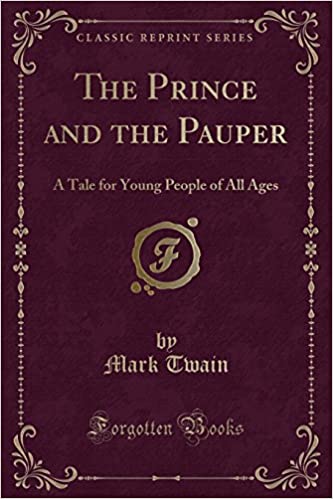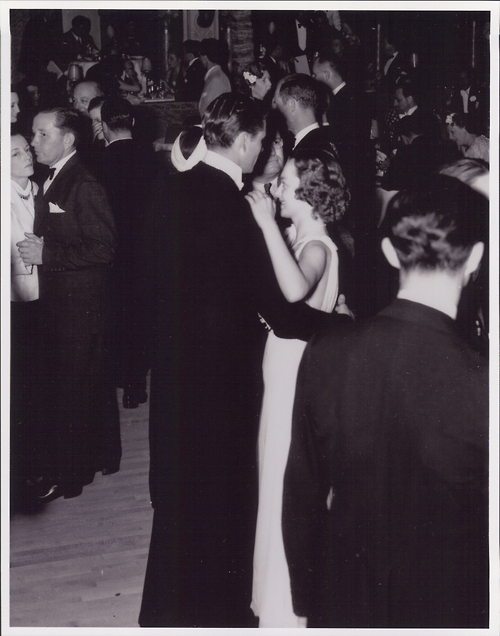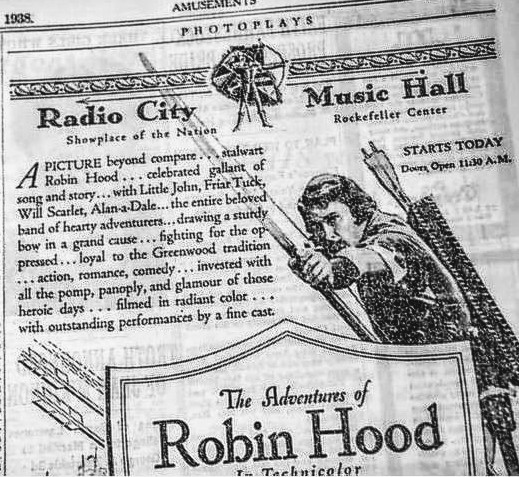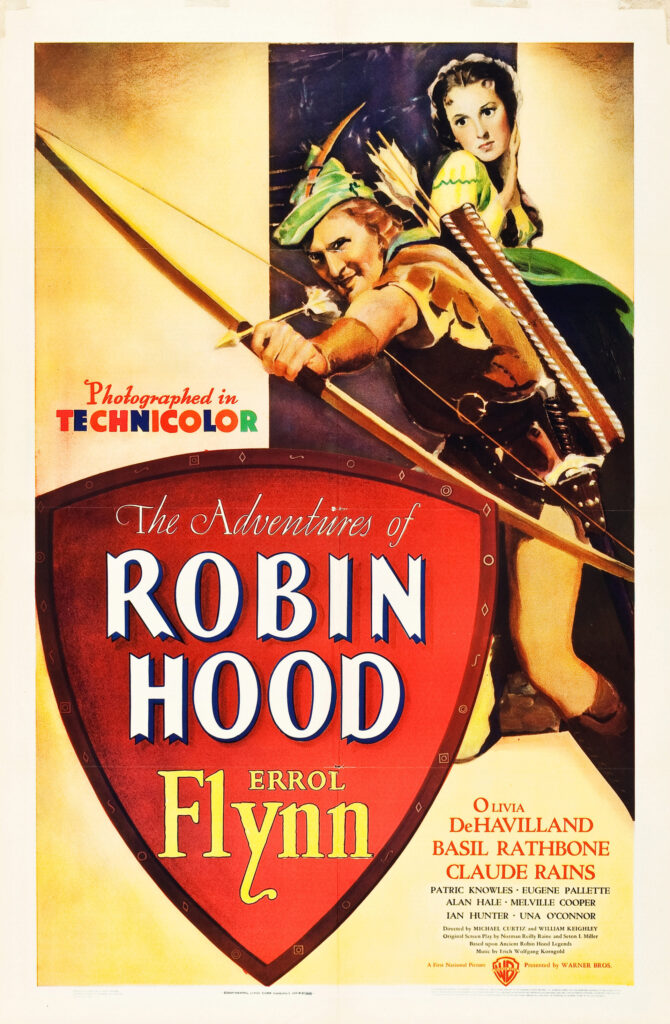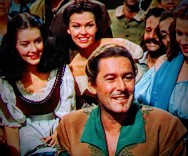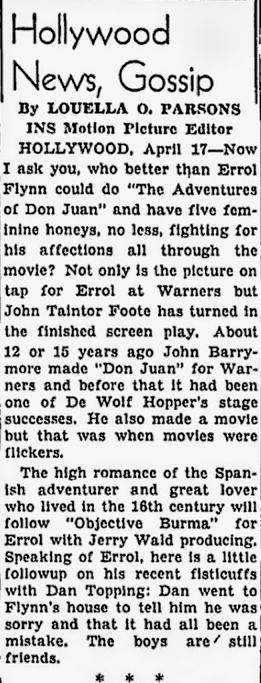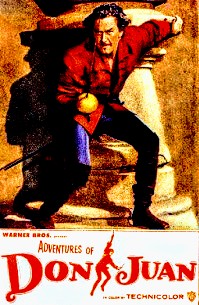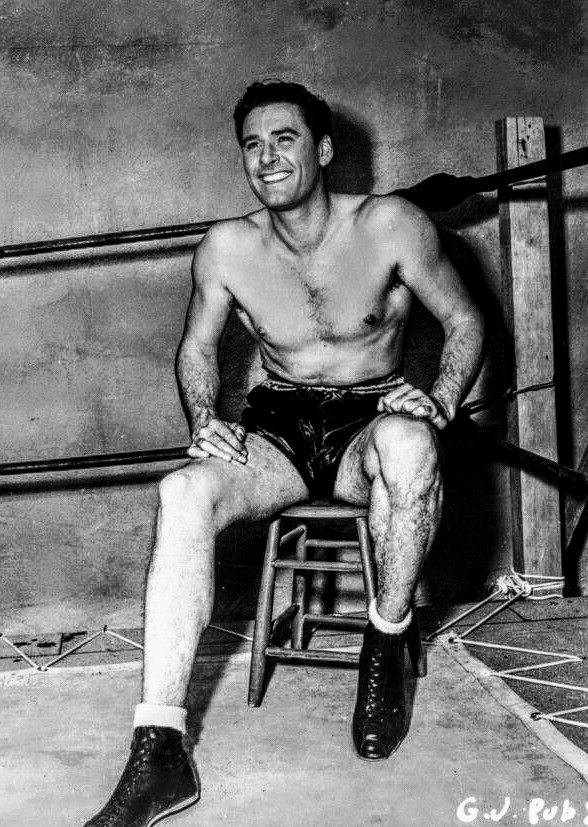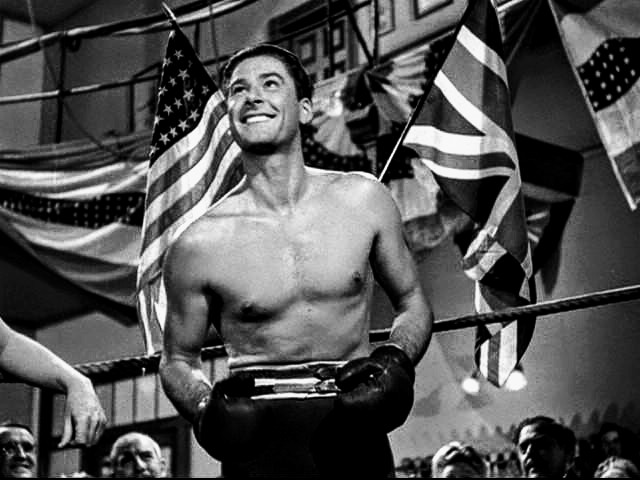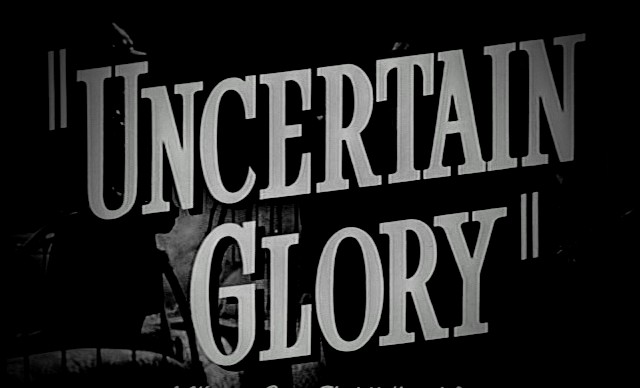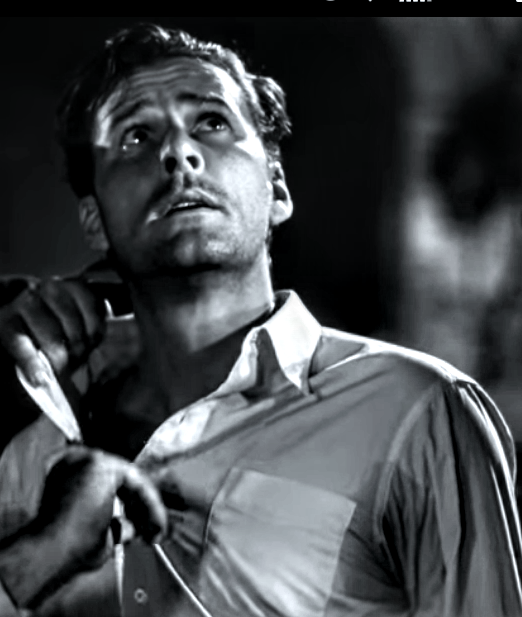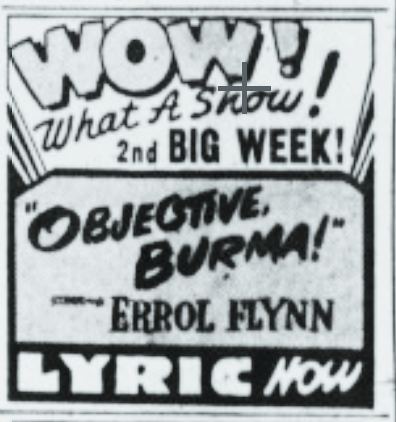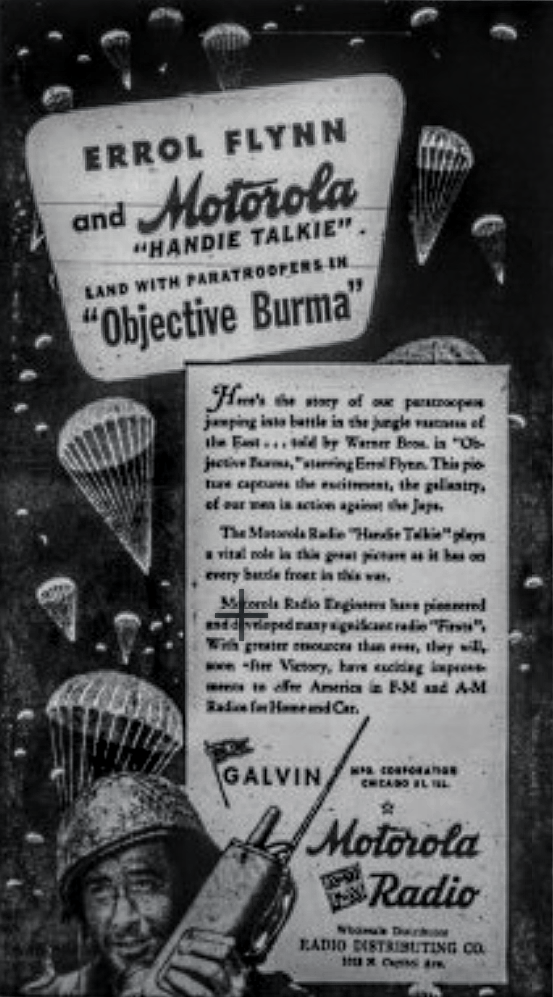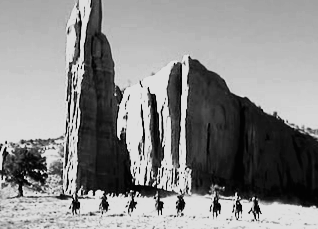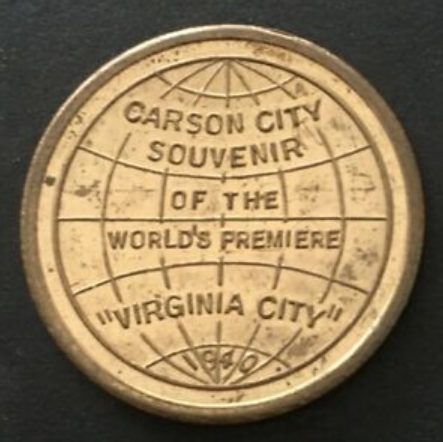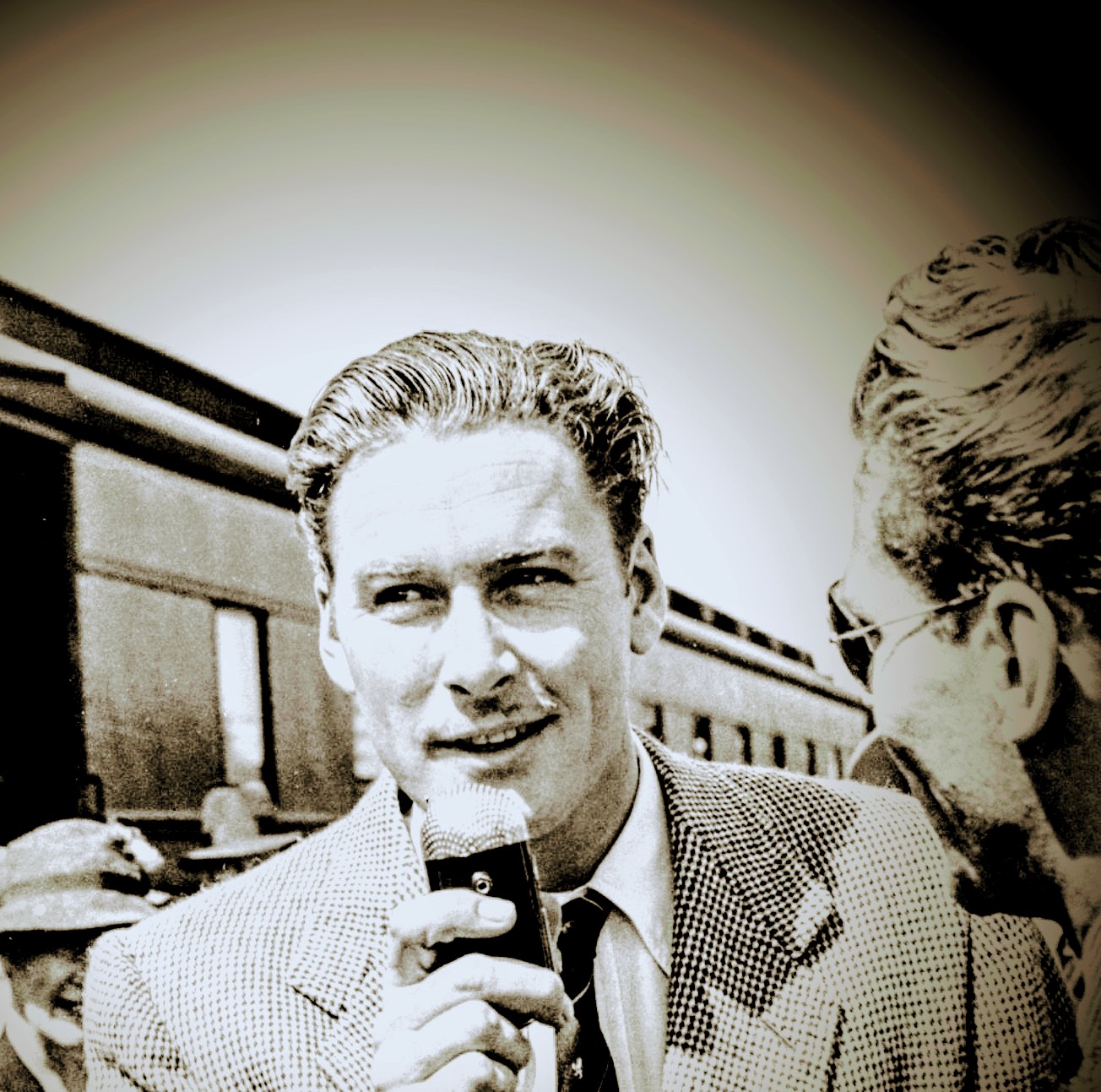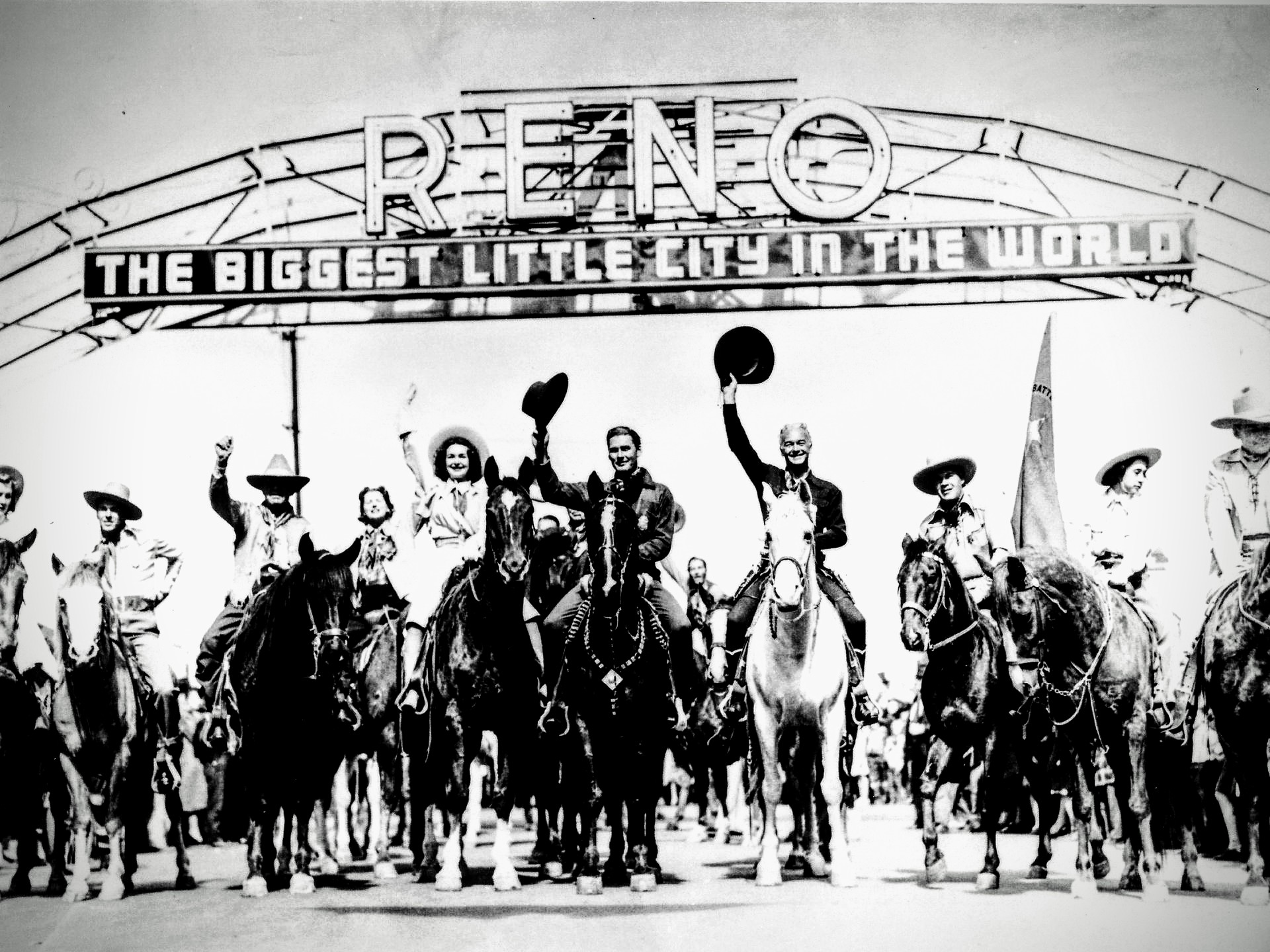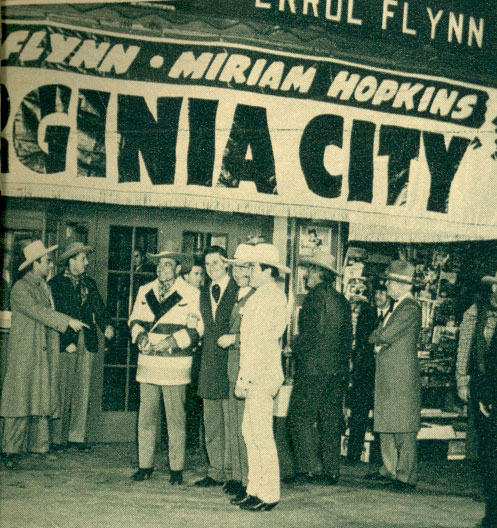May 11, 1940
The Weekly Wireless
Miriam Hopkins in three moods -demure, gay and grim. The swash buckler is, as you probably guessed, none other than Errol Flynn.
The appearance of a grasshopper in the leading
lady’s bed may wreck a million-dollar movie. That’s why location-man hates arranging locations, especially for films such as
Warner’s spectacular “Virginia City,” made at Flagstaff, with Miriam Hopkins and Errol Flynn.
The stars, director Michael Curtiz, and about a hundred others spent six weeks on the famed
Painted Desert.
Only those who have been on “location” trips can have any idea of the headaches involved. Joe Barry, who handled the “Virginia City” job, estimated the expense og the trip at approximately £20,000, over and above regular salaries and production costs.
But money was the least of his worries. A location invariably offers unexpected problems, which may vary from finding lost children to the discovery of a grasshopper in the leading lady’s bed.
He can figure almost exactly the cost of train fare and freight. He can allow £2OOO, more or less, for food for the company, and not be far wrong.
Even if Miss Hopkins had insisted on strawberries for breakfast, or if Mr. Flynn had called for a special kind of beef to keep up his flagging strength, the final totals would not have been changed much. But there are other expenses which cannot be budgeted so closely. There are the items of rent and feed for horses needed, in addition to those taken from Hollywood, accommodation and food for drivers of trucks and buses from the studio and those hired “on the ground.”
Flagstaff, where the company had to stay, is a small town of 4000 inhabitants, with three small hotels and a limited number of restaurants.
The problem of assigning living quarters and eating places was no small one, and arrangements for doctors, nurses, dentists, barbers, laundries, and filling stations had to be made.
Dry-cleaning alone presents a problem in a small community. Even though he allowed £3OO for that
item, he had to be sure that the local cleaners could give him the overnight service he needed.
He had to get local people to serve as extras, and this invariably led to hard feelings on the part of those he did not employ.
A location-man must, if possible, re-route any regular plane service over the location. Railroad whistles have to be suppressed.. Officials of all kinds must be met, wheedled, placated, and side-tracked. Sometimes fences had to be removed, and replaced later,and roads had to be covered up. (“Virginia City” starts in American Civil War times, so that motor cars and their tracks must be kept well out of sight.)
Irate neighbors in the vicinity who had not been employed by the company chopped wood and beat
on tubs, to the dismay of the sound men, until Joe appeased them.
Fire hazards had to be watched, dry creeks to be flushed with water dragged miles in tanks, a telephone from the company headquarters to the home studio had to be kept open continuously.
On any location at night there are standing-room-only signs before the theatres and cafes. Ice cream is at a premium. The studio had to
put up a big bond that no liquor will be allowed on the Indian reservation near the “Virginia City” camp.
Joe brought the “Virginia City” location back to Hollywood according to budget. But he lost weight doing it. He always does.
…
ERROL’S LETTER ABOUT THE LOCATION
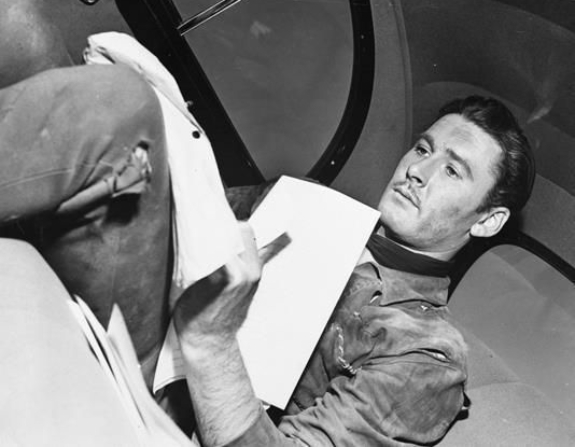
…
…
DICKIE JONES’S MEMORIES OF ERROL AND FLAGSTAFF
Did you stay in Flagstaff while filming Virginia City?
DICK JONES: Oh yeah, I remember it real well. I just about ate myself to death with trout. I loved it. I actually came back to Flagstaff later that year to do The Outlaw.
What can you tell us about the personal appearance you made at Flagstaff’s Orpheum Theater while filming here?
I don’t remember it at all. I probably did a trick roping act, because that was the only thing I knew. (Laughing) I could strum a ukulele but that wouldn’t have been much!
Do you have memories of working with Errol Flynn in Virginia City?
The one thing I can remember was that he had this standard-sized schnauzer. He had that dog trained. [Flynn] had this swagger stick and he’d be slapping his boot with it, then he’d stop to talk to somebody and he’d slap them on their boot with that swagger stick. Then when he walked away the dog would come up and lift its leg up on them. I think [co-star] “Big Boy” Williams almost wanted to kill him!
I really enjoyed working with Errol Flynn. I worked with him again on Rocky Mountain (1950); that was my favorite of all the films I ever made. [Flynn] was one of the best journeyman actors. He knew his trade and worked his craft real well.
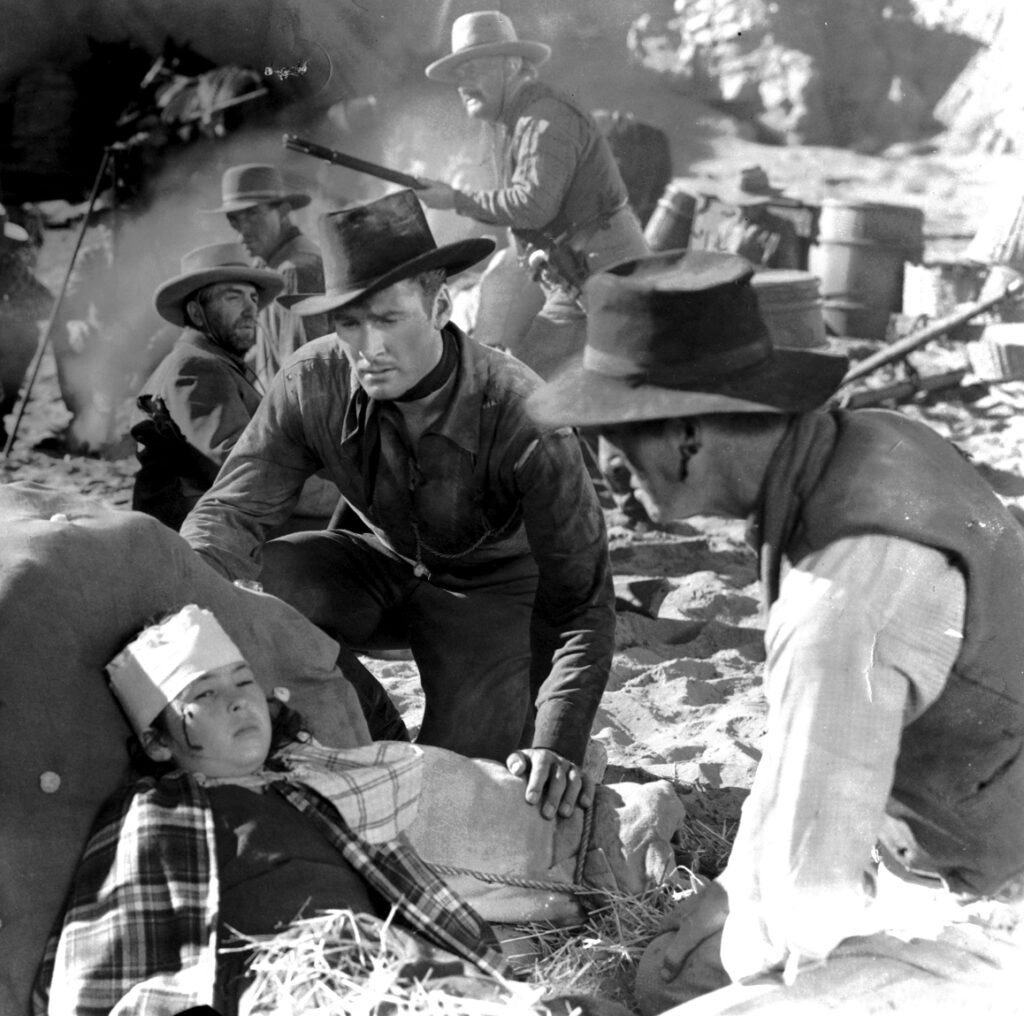
— Tim
